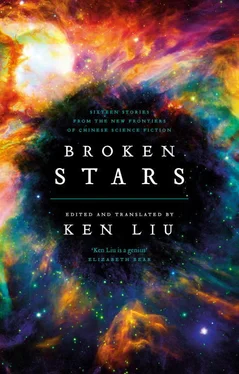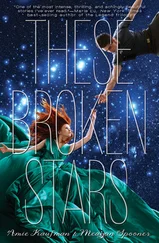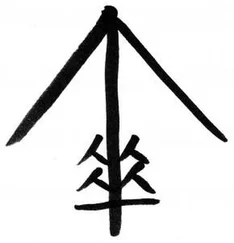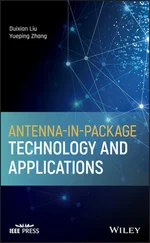Author’s Note: Science fiction writer Liu Cixin once created a software poet and submitted a sack filled with the poet’s work to a publisher. The editor wrote back, “You have written too much. I cannot read it all.”
Levesque, Hector J. “On our best behaviour.” Artificial Intelligence 212 (2014): 27–35.
This example comes from Marcus, Gary. “Why Can’t My Computer Understand Me?” The New Yorker , August 14, 2013 (accessible at http://www.newyorker.com/tech/elements/why-cant-my-computer-understand-me).
See, e.g., Levesque, H. J.; Davis, E.; and Morgenstern, L. 2012. The Winograd Schema Challenge. In Proceedings of KR 2012 . Levesque, H. J. 2011. The Winograd Schema Challenge. In Logical Formalizations of Commonsense Reasoning, 2011 AAAI Spring Symposium, TR SS-11-06 .
The example is drawn from Terry Winograd, Understanding Natural Language (1972).
English translation courtesy of Anatoly Belilovsky, © 2014. Used here with permission.
In our timeline, Jin Yong, Gu Long, and Liang Yusheng are three of the acknowledged masters of wuxia fantasy, and most of their best works were written before 1980. Huang Yi’s works rose to prominence later, in the 1990s.
This is a bit of an inside joke for Chinese SF fans. In our timeline, Yao Haijun is the executive editor for Science Fiction World , China’s (and the world’s) biggest sci-fi magazine by circulation. Baoshu, the author of this story, began his career as a fanfic author in the universe of Liu Cixin’s “Three-Body” series.
In our timeline, “workers’ Mao Zedong Thought propaganda teams” were a unique creation of the Cultural Revolution. They consisted of teams of ordinary workers installed at colleges and high schools to take over the administrative functions and to put a stop to the bloody Red Guard factional wars. For the most part, they stabilized the chaos introduced by the early stages of the Cultural Revolution.
Translated by Carmen Yiling Yan and Ken Liu.
The Imperial Academy (教坊) was an official school that trained musicians, dancers, and other entertainers to perform for the court.
This corresponds to early July in the Gregorian calendar.
The sixth year of Guangyun corresponds to 979 CE. Liu Jiyuan (the young emperor in Jinyang) had been ruler of Northern Han since 968 CE, but did not initially adopt a new era name.
Bi Sheng (毕昇) was an eleventh-century Chinese commoner printer who invented the world’s first known movable type using baked clay.
Alchemy in China revolved around minerals and metals, and the primary goal was transcending mortality. The three mentioned texts deal to varying extents with alchemy, Daoism, and the mythical sages who had attained immortality and enlightenment.
Hu (胡) is an ancient Chinese term for non-Han ethnic groups, used mostly for Central Asians in the era this story takes place in.
Chuanyue (穿越) is an enormously popular Chinese genre similar to time travel, but with its own distinct tropes. Typically, the protagonist is from the modern day and travels into the historical past (or a secondary-world version of the historical past), often but not always through reincarnating into the body of someone of that era. Their anachronistic knowledge and upbringing sets them apart from others and allows them to break the status quo.
The Sixteen Prefectures, comprising a region around Beijing and along the Great Wall, had been under Han Chinese or more Sinicized Hu control for centuries until they were ceded to Liao in 938 CE. The strategically and symbolically valuable territory would remain a major point of contention between Liao and Song for years to come.
Huang Chao (835–884 CE) led an agrarian rebellion against the Tang Dynasty, declaring himself the Emperor of Qi after capturing and brutally sacking the capital Chang’an. He was eventually defeated and killed by former subordinates who had defected to Tang, including Shang Rang, but his ten-year rebellion severely weakened the already declining Tang Dynasty.
The original Zizhi Tongjian (资治通鉴, meaning “Comprehensive Mirror to Aid in Government”) was compiled from prior sources by the Song Dynasty historian Sima Guang to cover Chinese history in chronological format from 403 BCE to 959 CE, the year before the founding of Song. The Extended Continuation was written by the later Song Dynasty historian Li Tao in the style of the original, covering the years between 960 and 1127 CE.
Translated by Carmen Yiling Yan and Ken Liu.
The koan behind the verses is attributed to Zhaozhou Congshen (778–897 CE), a Chan (origin of the Japanese “Zen”) Buddhist master, sometimes considered the greatest master of the Tang Dynasty. In the koan, a monk repeatedly asks the meaning behind Master Zhaozhou’s visit, and each time Master Zhaozhou replies, “The cypress tree in the courtyard.” Thanks to Anatoly Belilovsky for the verse rendering used here.
This is a quote from the Diamond Sutra .
Originally written in English.
Author’s Note: Zhang Ran (张然) is not the same person as, and not related to, the science fiction author Zhang Ran (张冉), who began publishing in the 2000s and whose “The Snow of Jinyang” is in this anthology.
The first and third books in the series were translated by Ken Liu, and the second book was translated by Joel Martinsen.
Originally written in English.












